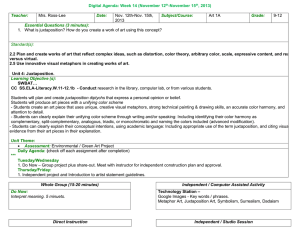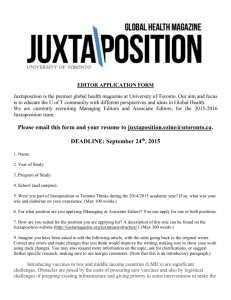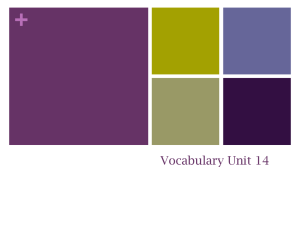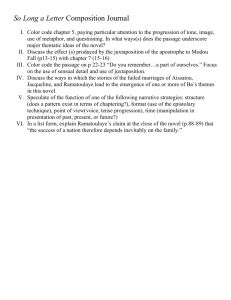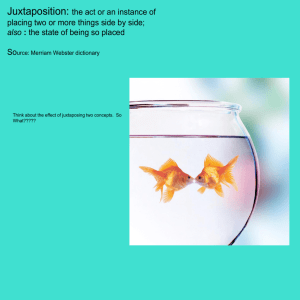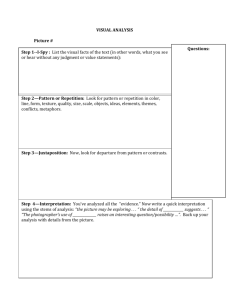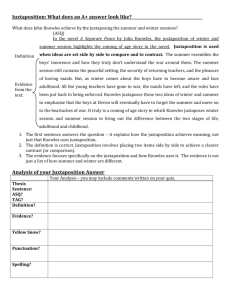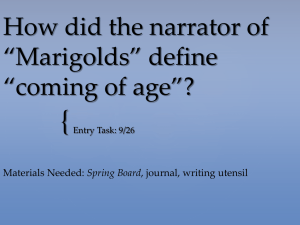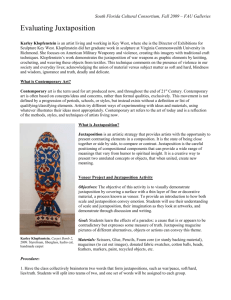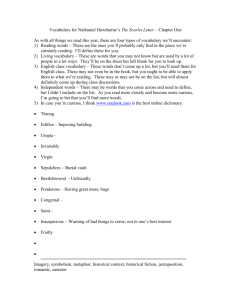Juxtaposition Info – Word
advertisement
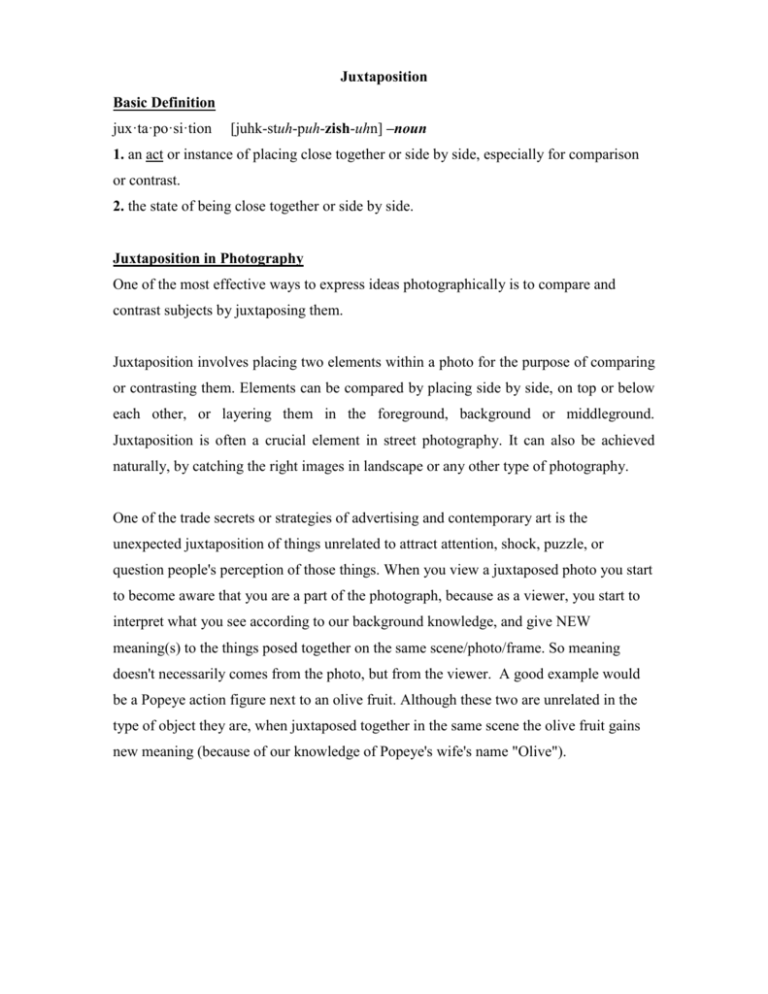
Juxtaposition Basic Definition jux·ta·po·si·tion [juhk-stuh-puh-zish-uhn] –noun 1. an act or instance of placing close together or side by side, especially for comparison or contrast. 2. the state of being close together or side by side. Juxtaposition in Photography One of the most effective ways to express ideas photographically is to compare and contrast subjects by juxtaposing them. Juxtaposition involves placing two elements within a photo for the purpose of comparing or contrasting them. Elements can be compared by placing side by side, on top or below each other, or layering them in the foreground, background or middleground. Juxtaposition is often a crucial element in street photography. It can also be achieved naturally, by catching the right images in landscape or any other type of photography. One of the trade secrets or strategies of advertising and contemporary art is the unexpected juxtaposition of things unrelated to attract attention, shock, puzzle, or question people's perception of those things. When you view a juxtaposed photo you start to become aware that you are a part of the photograph, because as a viewer, you start to interpret what you see according to our background knowledge, and give NEW meaning(s) to the things posed together on the same scene/photo/frame. So meaning doesn't necessarily comes from the photo, but from the viewer. A good example would be a Popeye action figure next to an olive fruit. Although these two are unrelated in the type of object they are, when juxtaposed together in the same scene the olive fruit gains new meaning (because of our knowledge of Popeye's wife's name "Olive"). Types of Juxtapositions Ironic/Contrast – use of words/images that are placed together and use irony. Place in an opposite way in what is expected, often resulting in something that is funny. Word Play – Images next to each other have words that form another word or are contrasting. Out of Place – An object is placed in an environment that is unexpected. Fused/Merged – Two or more objects placed in a way that looks fused or merged together. Layered – Objects in the background/middleground/foreground that have a changed perspective and depth of field. Project Requirements Understanding of juxtaposition and why it is used in photography. Take photographs of juxtapositions and turn in each image via email Take more than 4 pictures (each) so you have a good photo to choose from for each of the 5 juxtaposition types. You should have at least one good photo of each type. Work on in-class assignment. In-Class Assignment In-Class – Create five images that show juxtaposition using images cut out from magazines. Mount images on paper. They can be various types of juxtapositions. Create a juxtaposition of each type.
